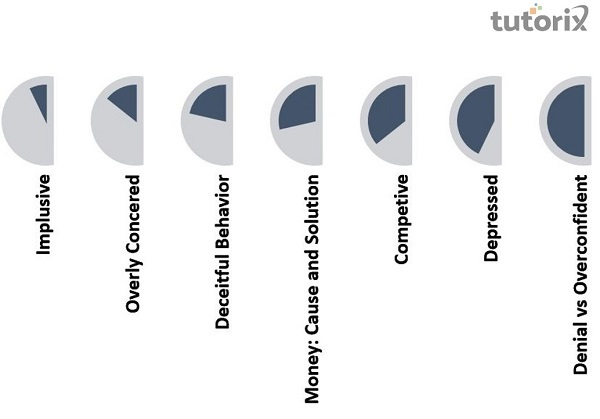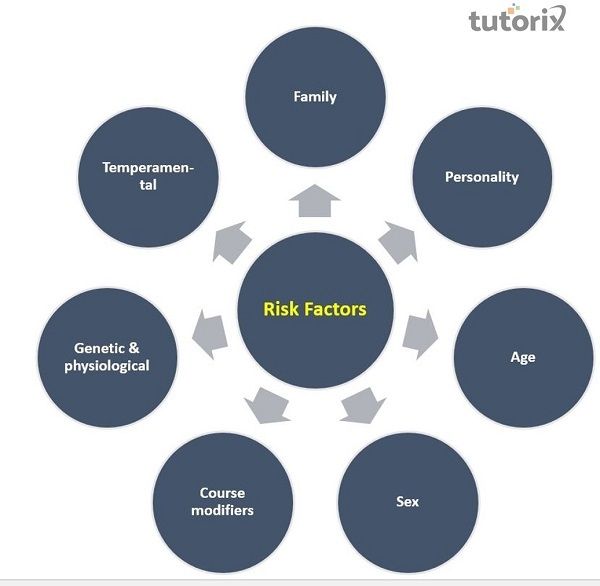

You on surfing the internet when you suddenly get a pop-up; It is a rummy website pop-up. You close it. Sounds familiar? However, the website is still running. That means there must be someone who is using it. Who are these people? Are they not scared of getting scammed or losing money? What if they enjoy it?

Gambling disorder might sound something weird, but it is a medical condition. Gambling can be understood as risky behavior where a person puts something at stake in hopes of getting something better. Coming under the broad category of Substance-Related and Addictive Disorders, it is put under the sub-category of Non-Substance-Related Disorders, The only one within this sub-category as of right now. According to the American Psychological Association (APA), it is an "impulse-control disorder" which is characterized by "chronic, maladaptive wagering, leading to significant interpersonal, professional, or financial difficulties."
Individuals with gambling disorders have continuous and repetitive problematic gambling behavior, leading to impairment or distress. Characteristics include Gambling more money to reach the desired level of excitement; multiple unsuccessful attempts to cut down on their gambling; preoccupation with gambling and feeling distressed because of it; 'making up for the losses by gambling more; hiding level of involvement in gambling by lying; jeopardizing job, relationships, education, career opportunities and other aspects of social life; 'bailing out to others to solve their financial crisis. The problematic gambling should be persisted for at least 12 months to warrant a diagnosis of gambling disorder. Additionally, gambling addiction could be mild, moderate, or severe.
It includes:

People with gambling disorders may also indulge in deceitful behavior to cover their gambling activities. Subsequently, they may engage in illegal activities like fraud, embezzlement, forgery, or theft to get gambling money. They may also have distorted thinking; They may be in denial or think they have the situation under control or are overconfident. According to them, money is both the solution and the cause of their problems. They may be impulsive, competitive, enthusiastic, restless, and easily bored. In some cases, they may also be overly concerned with the approval of others and may be extravagantly kind when they win. Depressed and lonely may indulge in gambling when they feel helpless, guilty, or depressed.
Gambling disorders can develop in adolescence or early adulthood, although in some people, the symptoms do not show up until middle or even older adulthood. Gambling disorder takes years to develop, though the progress in women seems faster compared to males. Studies have shown a trend where most people who develop a gambling disorder show a pattern of gambling that progressively increases both frequency and amount of wagering. Surely, less mild forms can evolve into more severe forms.
The frequency of gambling can be related more to the type of gambling an individual indulges in rather than the severity of the overall gambling disorder or the amount of money spent. People engage in certain gambling types more frequently (like buying starch tickets daily) than others (like blackjack). Likewise, someone may wager thousands of rupees but still might not have problems with gambling.
Gambling patterns may be regular or episodic. Additionally, gambling disorder may be persistent or in remission. Instances of gambling can increase due to stress, depression, substance use, or abstinence. Gambling disorder is occasionally linked with spontaneous, long-term remissions. People may underestimate their vulnerability to developing a gambling disorder or relapse following remission. When in a period of remission, they may wrongly assume that they are now capable of regulating gambling and can continue to engage in non-problematic forms of gambling, only to experience a relapse of gambling disorder.
It includes:

Temperamental: Increased rates of gambling disorder are linked with childhood or early adolescence onset of gambling. Gambling disorder also appears to combine with antisocial personality disorder, depressive and bipolar disorders, and other substance use disorders, particularly alcohol use disorder.
Genetic and physiological: Gambling disorders can also cultivate in families. There are both environmental and genetic factors associated with this; Instances of gambling problems are more frequent in monozygotic than in dizygotic twins. Additionally, gambling disorder is more pervasive among first-degree relatives of individuals with moderate to severe alcohol use disorder than among the general population.
Course modifiers: Many people, especially teenagers and young adults, will likely overcome their gambling disorders with time. Many people, especially teenagers and young adults, will likely overcome their gambling disorders with time. The history of gambling problems is a predictor of future gambling problems. Psychopathology, such as attention-deficit/hyperactivity disorder and anxiety disorders, has been linked to a higher likelihood of developing a gambling disorder among people who gamble and a longer-lasting persistence of gambling disorder symptoms.
Sex: Although men are more likely than women to develop gambling issues, this gap has recently been reduced. Women typically prefer less strategic gambling, such as bingo or slot machines, while males seem more driven to card games or sports betting.
Age: In contrast to adults, who make up approximately 1% of the population, 2% to 7% of youths’ experience gambling disorders, many of which start during adolescence. Additionally, gambling is more common among college students than in the overall population.
Family: It is more common for people to experience gambling problems if one of their parents has a gambling disorder. According to research, genetic and environmental influences contribute equally to the development of a gambling illness.
Personality traits: Restlessness, easily bored, extremely hard-working, or very competitive may be at greater risk of developing a gambling disorder.
People can overcome gambling problems with the support of individual and group treatments such as cognitive behavioral therapy, which assists in identifying and changing harmful thoughts and behaviors. Motivational interviewing is another technique that can help patients fight their urges to gamble by converting ambivalence about stopping into motivation. Support groups can also prove to be helpful in the treatment of gambling disorders. At present, there does not exist any specific medication that is approved as a treatment option for gambling disorder, although research and testing are continuing on this front.
Gambling disorder affects about 0.1%–0.7% of people worldwide. Apart from the apparent financial loss, it affects not just the individual indulging it but also those around them; It has a high social cost. It is also pushing people to engaging people in illegal activities. The introduction of online gambling websites has become even more accessible to a wider range of people. There needs to be better monitoring of casinos and online gambling channels; Attention should also be paid to informal gambling channels like those seen in games. There need to be tighter laws and better community awareness about gambling disorders. Anyone can fall into the spiral of gambling. Community-based approaches should be adopted to battle problematic gambling.